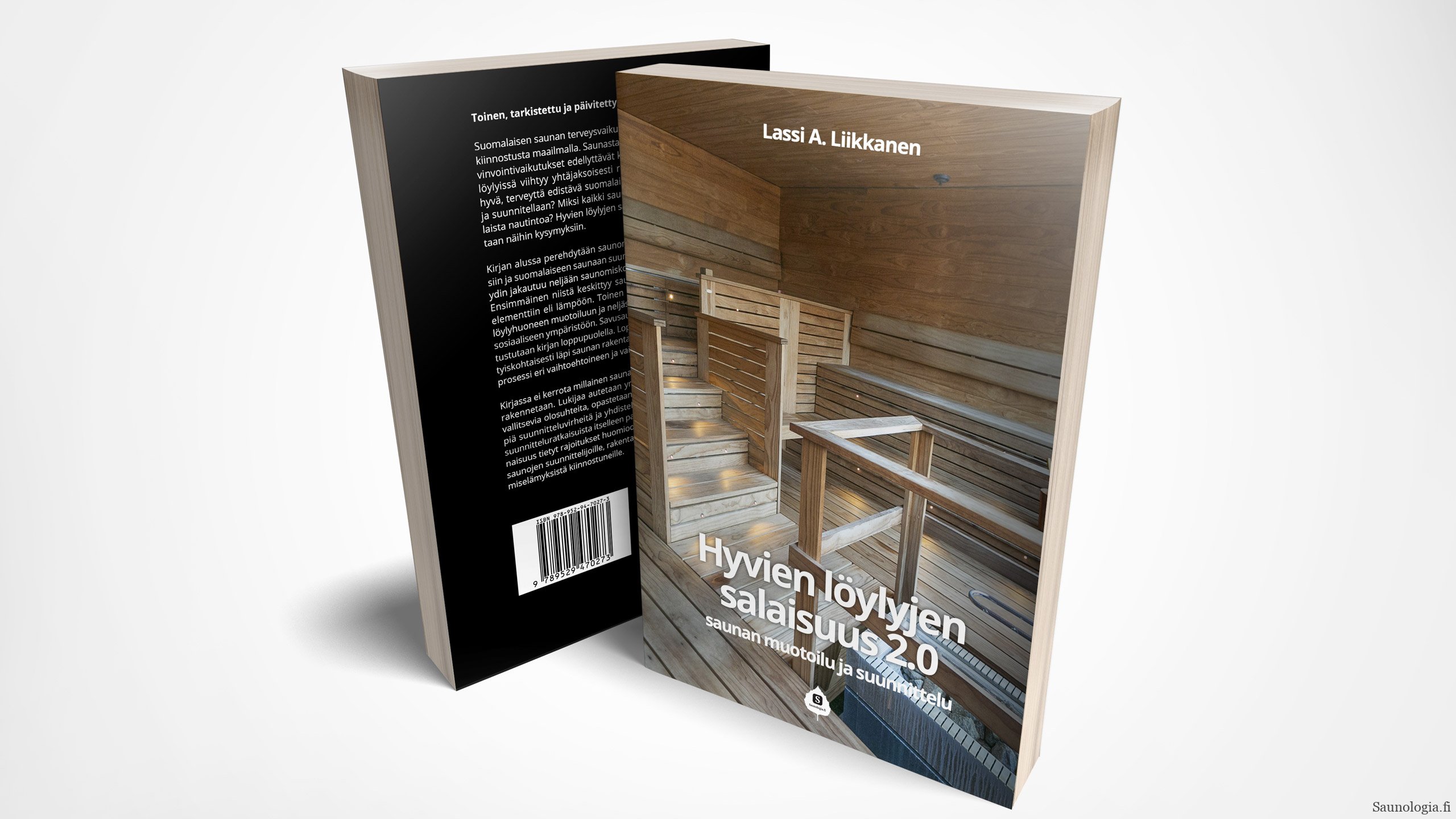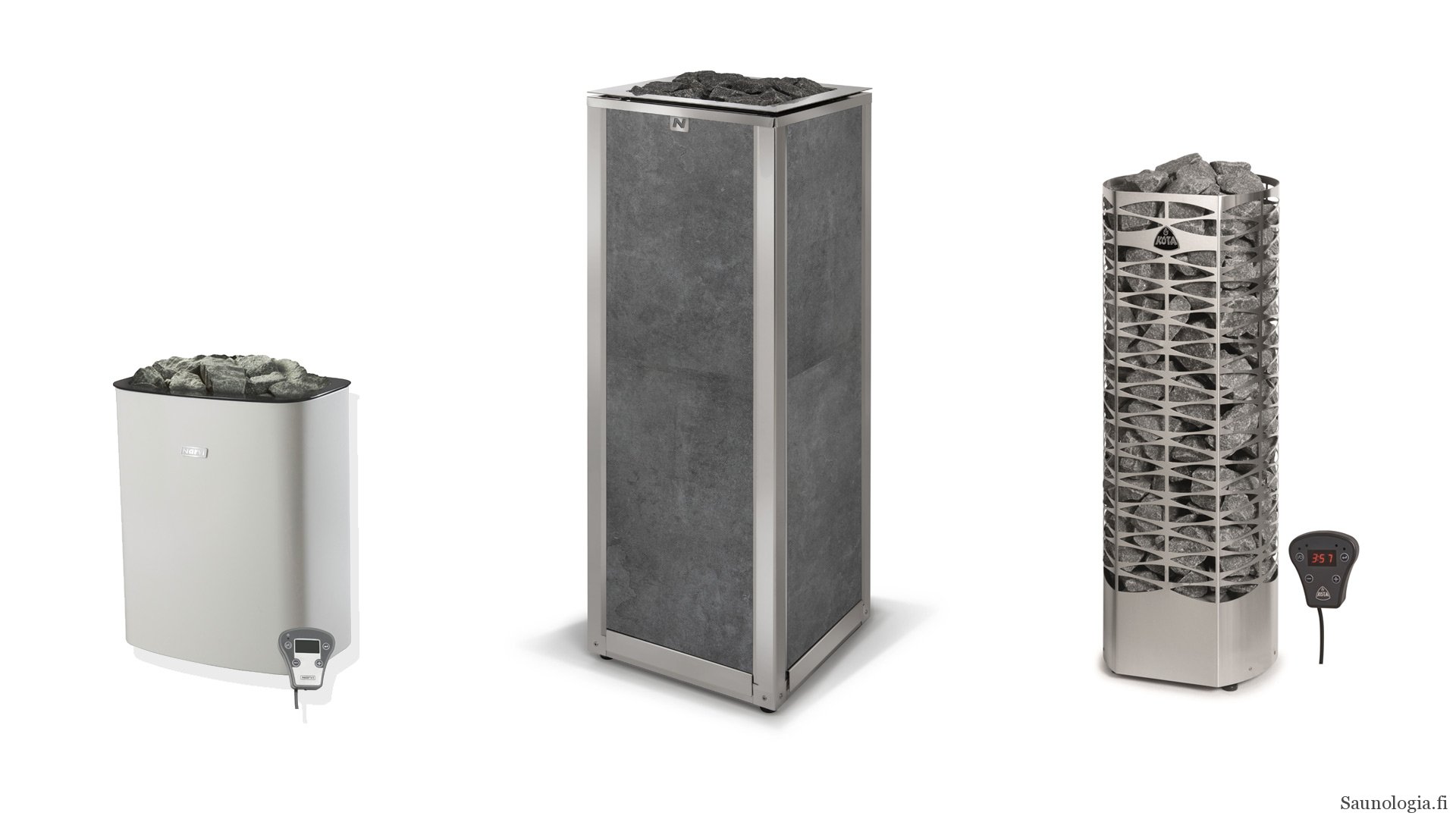Finnish Sauna Essentials Part 4 – sauna stove and stone selection, basic use
Which stove should I choose?
Consider the following factors:
- Stove type
- Heating capacity for the desired room space
- Stone capacity of the stove
- Height
- Usability and use considerations
Different types of stoves have different qualities and construction requirements. The most important thing is to have a stove with adequate, but not excessive heating power. The next thing is the amount of stones.
Electric stoves are the most versatile choice for frequent use across the regions which connected to the electric grid. Outside the grid, the wood-fired stove is the natural choice as firewood is easy to acquire at least all around Finland. These stoves are easy to operate, include timing options and even remote operation.
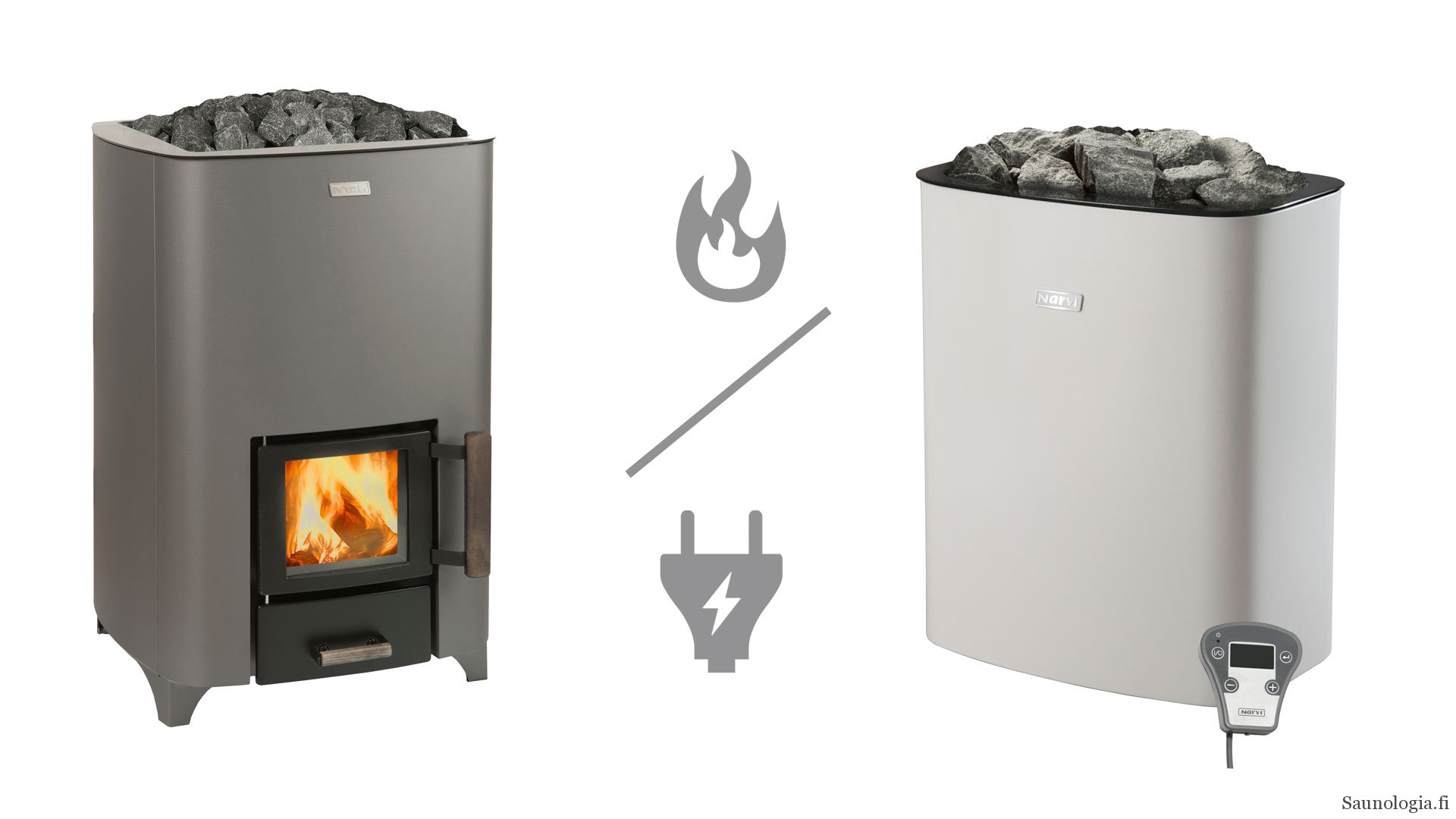
Wood-fired stoves are more demanding in use. You need to take care of fire wood, remove the ashes, spend your time to add logs to the fire repeatedly, and take care not to cause fire hazards or burns. On top of that, you need a proper sauna stove compatible chimney because the exhaust fume temperature are extremely high (even up to 700 degrees Celsius in some models). But Finnish people love them nevertheless.
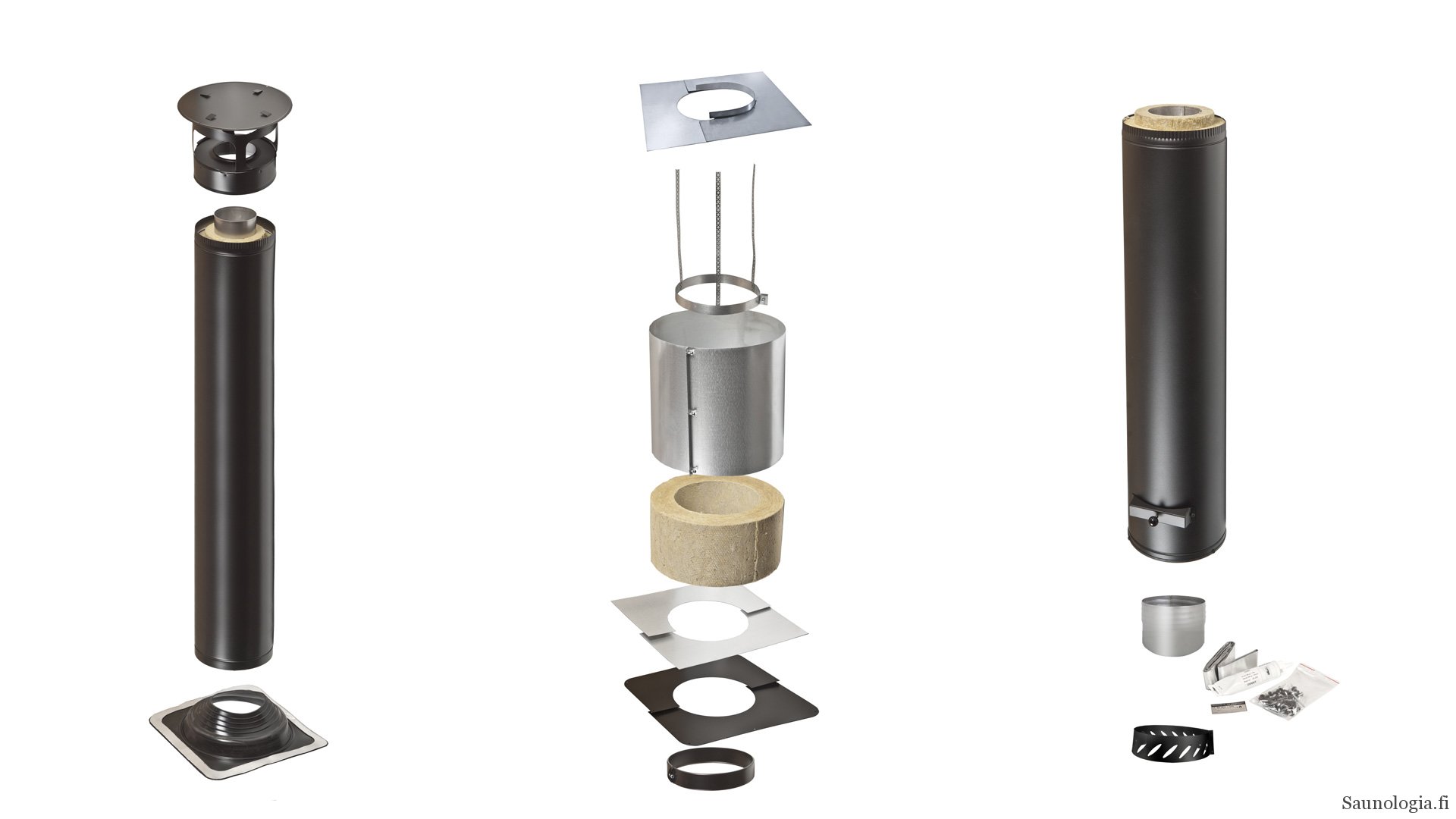
The chimney is the biggest structural requirement for the wood-fired stove. In Finland, people have switched from real brick and mortar chimneys to so called light or steel flues that are cheap and easy to install even in existing buildings. However, DIY constructors have not always followed the safety advice or used products that do not meet the European standard of temperature class T600 (continuous resistance up 600 degrees Celsius). This has resulted in numerous disastrous fires in the near past. This has been a problem particularly in association with modern detached houses that have built-in saunas and very thick insulation under the roof.
You also have to take into consideration the safety distances to burning materials, which vary from stove to stove. Additional safety panels can be installed to protect heat sensitive surfaces, such as wooden wall panels or benches. These can be used to considerably reduce the safety standards.
Finally, stove height is a surprising but important consideration. According to common wisdom (or sauna folklore…) that has some basis in physic, the height of the stove affects the sauna heat distribution. Ideally, all of the space occupied by sauna bathers should have equal temperature. If the sauna has natural ventilation (which will be discussed in the next FSE article), then it is important that there is adequate space above the stove, at least 1,5 meters.
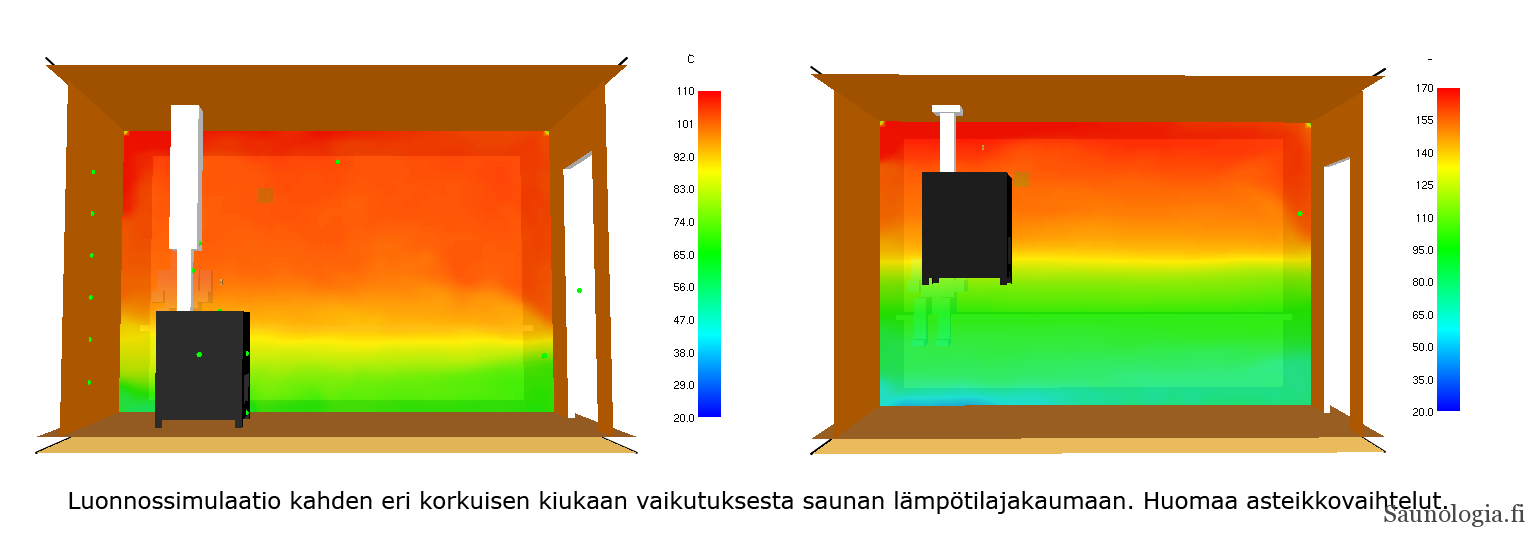
Rocks matter: quantity and quality
Storing heat in the stones is an important part enabling the Finnish sauna. For this reason, all Finnish sauna stoves make space for sauna stones. The amount of stones as well as the temperature they reach during sauna heat up phase varies a lot. To a degree, more is better (with reasonable limits). For decades, commercial electric stoves had just 15 to 30 kg of stones. In the past two decades, the Finnish electric stove market has been transformed by new, tall and slim heaters models which visibly boast up to hundreds of kilos of stones! This makes a big difference for the potential to create steam as well the heating time. Although the heating time may increase, if you set a lower temperature target for the sauna room, you may in fact consume less energy in the process!
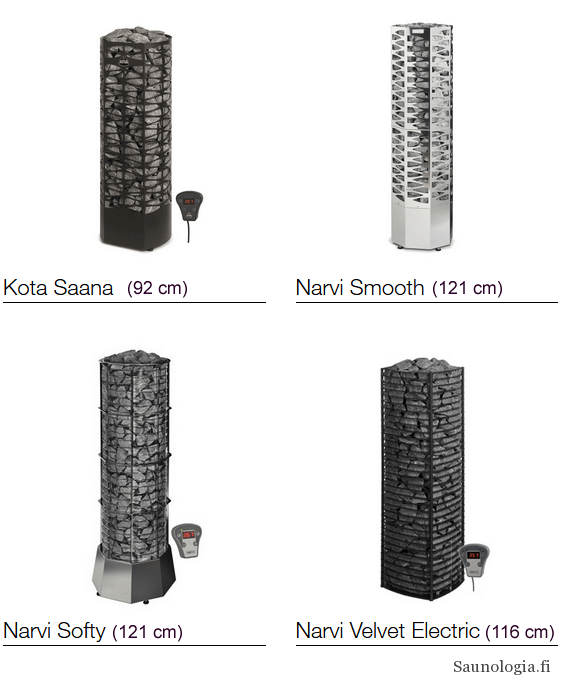
So how much rocks should the stove carry? If you wish to have a stove which requires little or no additional heating during sauna bathing, you need approximately 15 kg of stones per cubic meter of sauna. This means that saunas of small size (8 m3) would need a stove a with over 100 kg of rocks. Here it is assumed that rocks of effective density of 1,5 kg/dm3 are used, matching the extremely popular olivinediabase (a special igneous rocks with a combination of different types of intrusive rock). If your stove is being continuously heated, less is enough, but I’d still prefer having at least half (say 8 kg/m3).
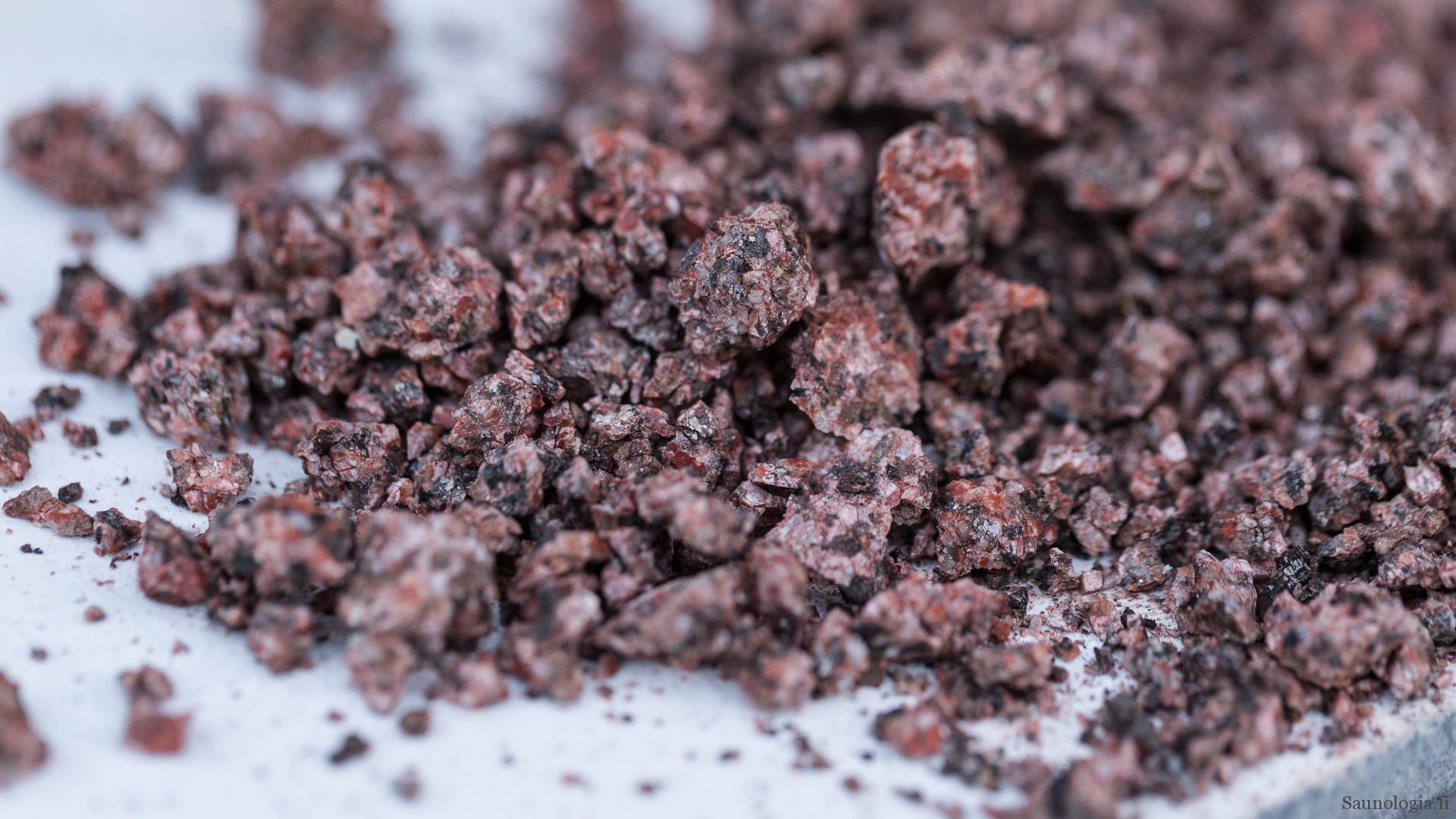
The quality of stones is crucial. High quality stones allow creating pleasant and healthy steam, and also last long. Inappropriate stones crack and disintegrate quickly, and may emit foul odor and even unhealthy gases or particles when heated.
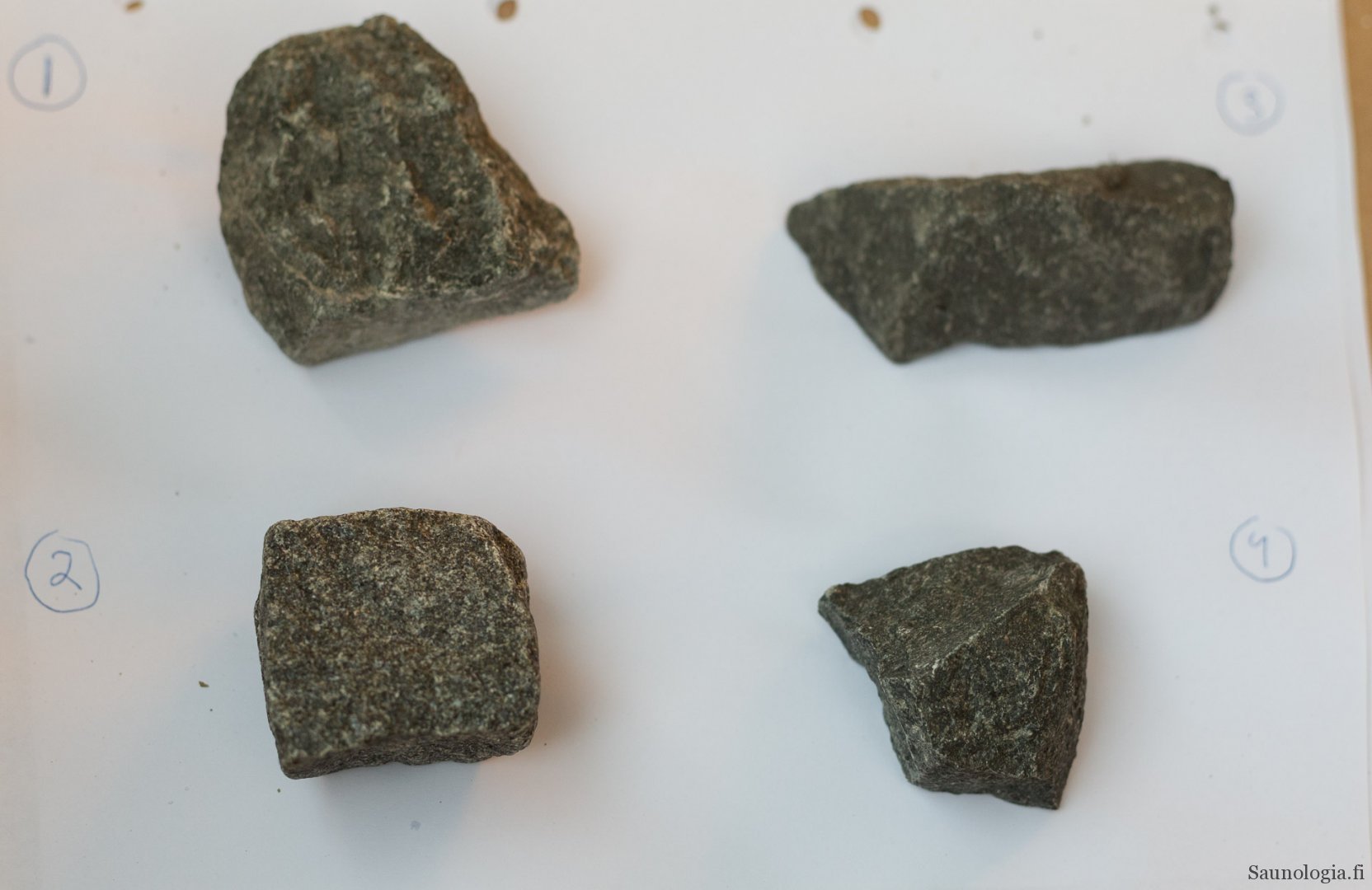
For Finnish consumers, I recommend using commercially available stones that are very affordable and yield excellent return on investment. Things change if you live abroad where affordable Finnish rock are not easy to come by. If you can find a local igneous rock variety that fits your stove, you’re lucky! Also some volcanic extrusive rocks have been successfully used. Unfortunately it is not possible to a better universal sauna rock guide in this instance.
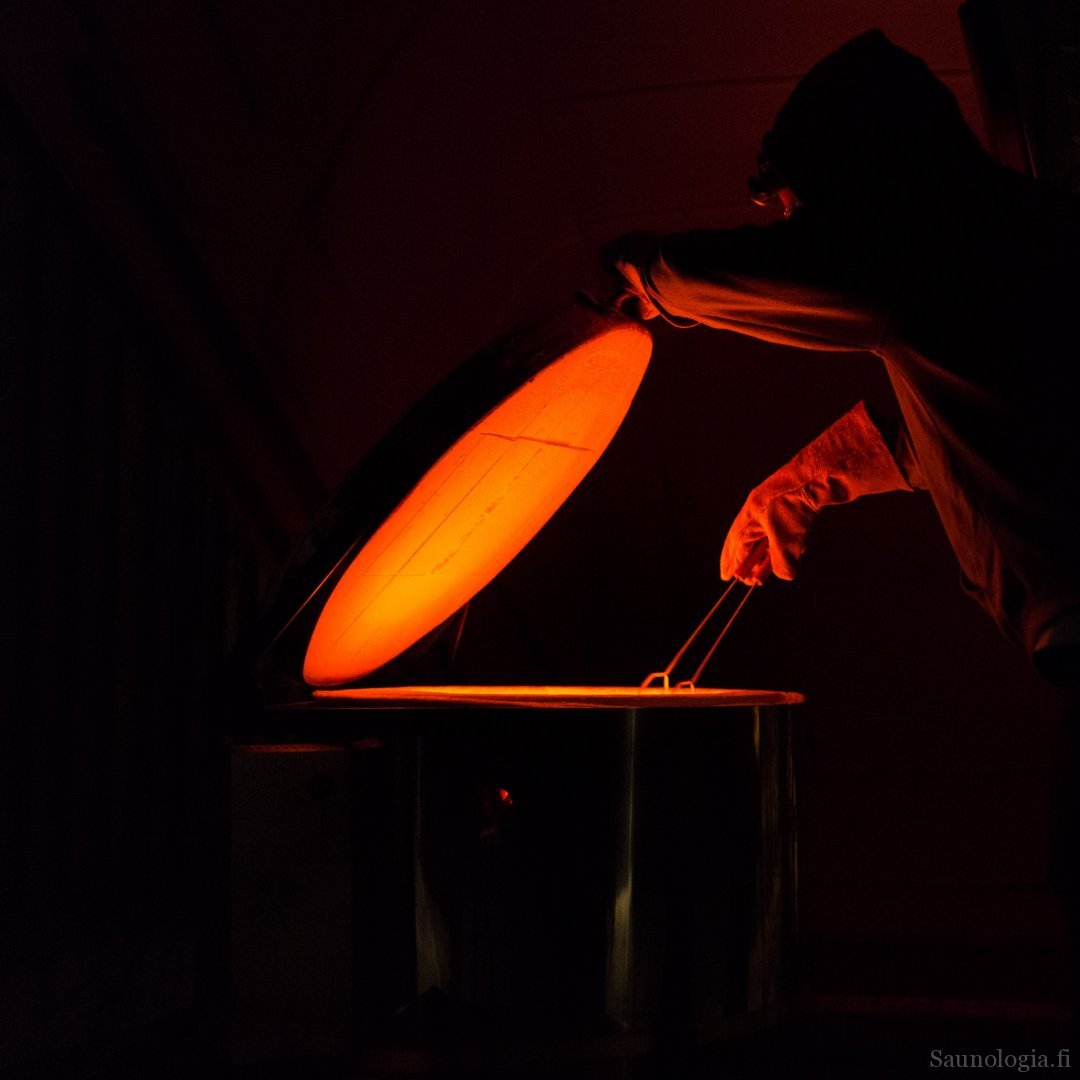
There are several different types of sauna stone varieties commercially available in Finland. However, the only guaranteed major difference is between natural stones (mined out of bed rock) and ceramic stones, created artificially as a masonry product. The latter can be more durable and multiple times more expensive. Price is less of an issue in public saunas which don’t suffer long periods of sauna downtime due to stone maintenance. Rocks need regular maintenance, in frequent use inspection several times a year is necessary to prevent further damage caused by aged stones. The crumbling of stones creates unwanted residue, slows down sauna heating and can damage the stoves.
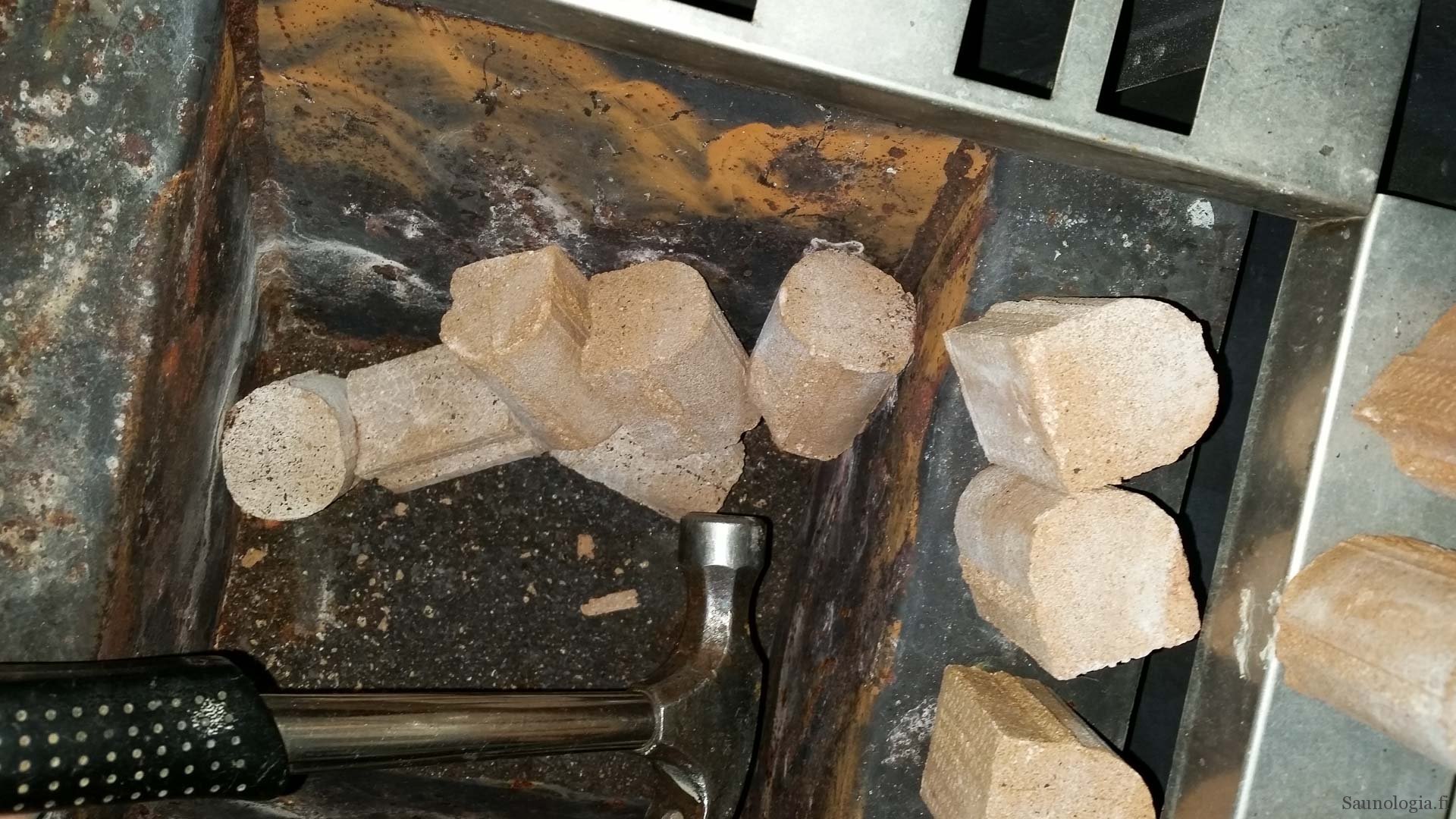
Which manufacturer, brand or model?
Over 100,000 stoves are sold every year in Finland. Nearly all of them are Finnish design, but few affordable brands are imported to Finland also, such as Estonian Stoveman and Huum, or Indonesian Sawo. Harvia and Helo (TyloHelo internationally) arethe most popular electric stove brands in Finland, although Tulikivi has made a remarkable entry in the high-end, design stove market in a short time.
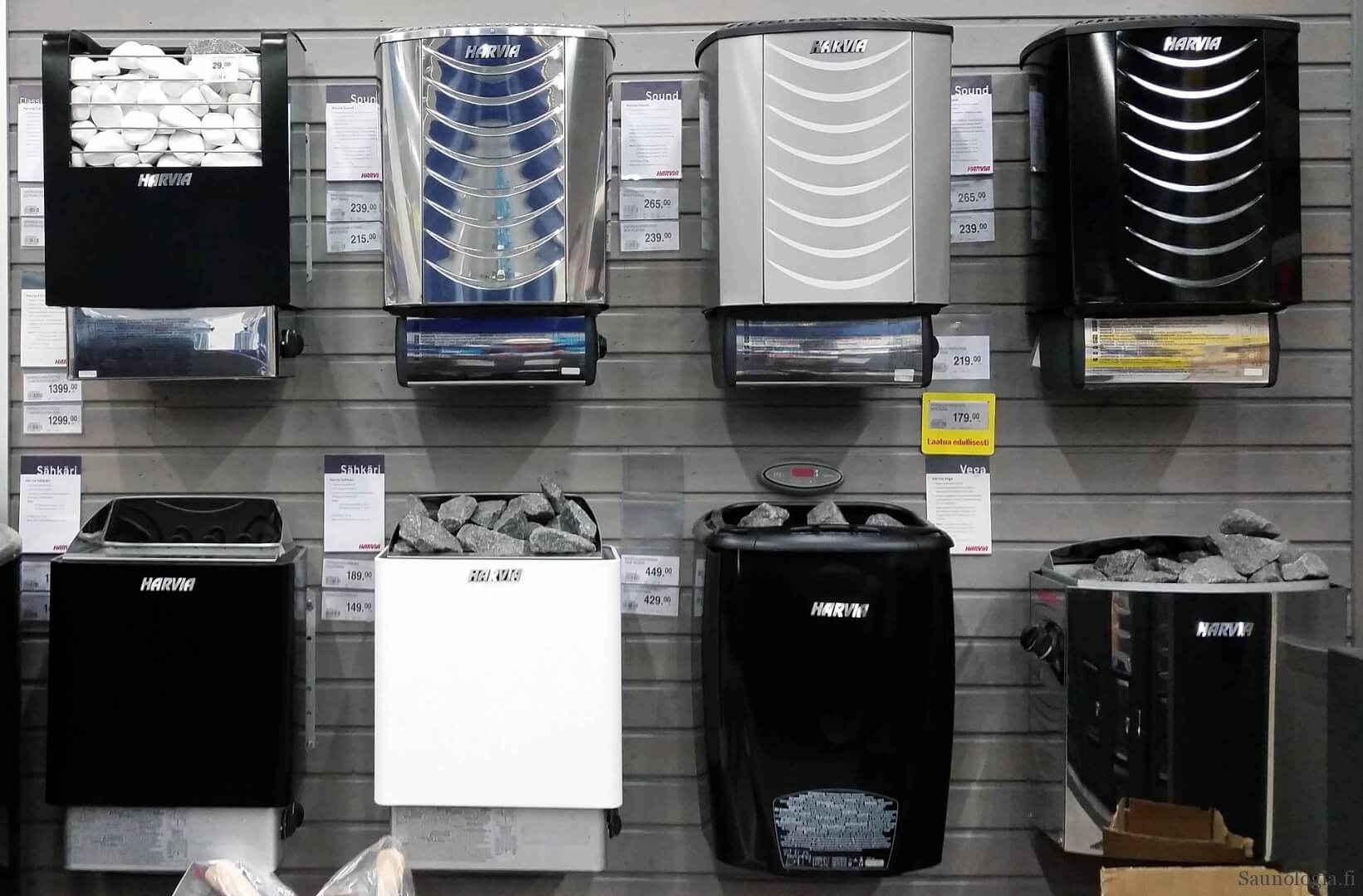
In wood-fired stoves, traditional brands are for instance Narvi, Misa and Veto. New comer Iki-kiuas has in two decades popularized a stove characterized by a massive amount of visible sauna stones. Aitokiuas is a specific brand known for single-fired wood stove, manufactured with minimal changes since early 1950’s. New brands in 21st century are few.
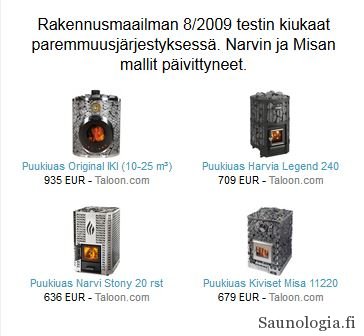
Finnish people have strong beliefs about the qualities of different stove types and brands. It is true that there are differences in efficiency, build quality and industrial design across models. However, there is little third-party, objective test data available to support these differences. Among wood burning stoves, the differences can be bigger whereas the majority of electric stoves are of very similar, simple design.
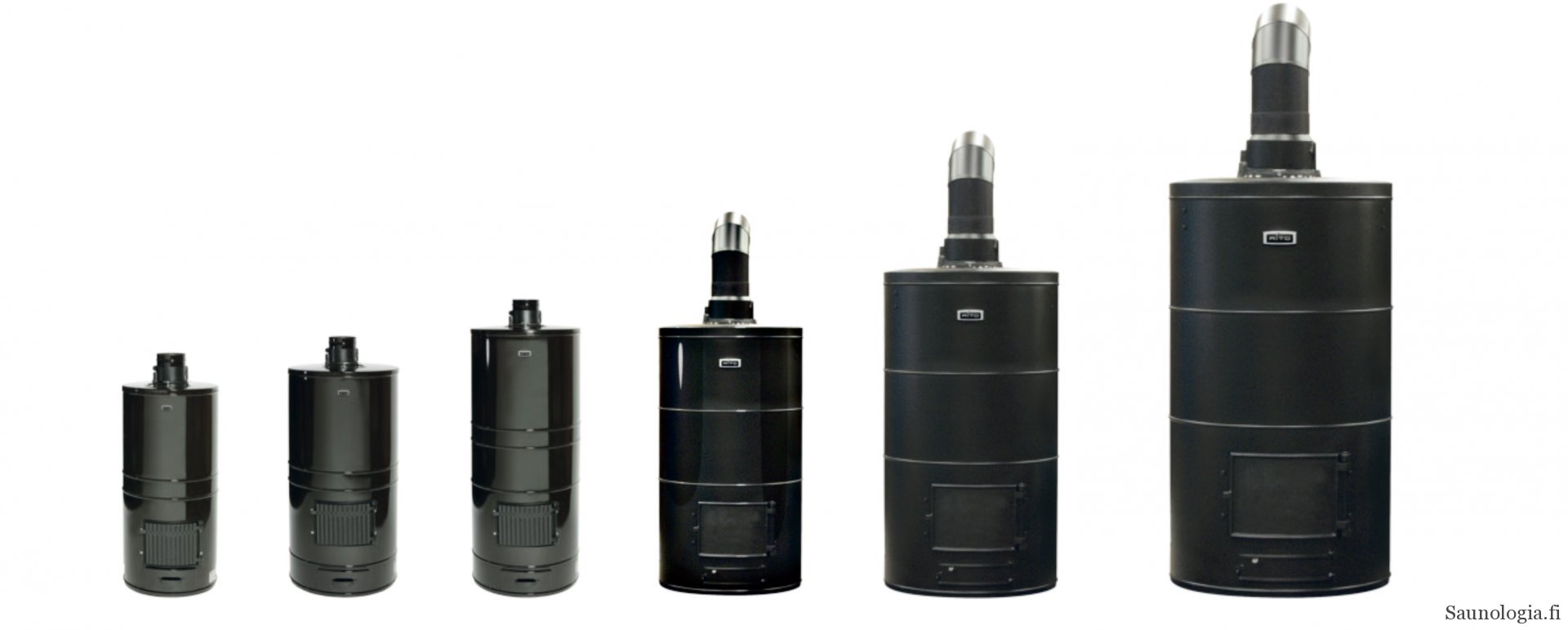
Finnish consumers make their stove decisions strongly based on the availability and pricing of the stoves in the local hardware store, as well the brand image. I’ve personally chosen Narvi as my partner at Saunologia.fi as I put trust in their designed and made in Finland style which make few compromises.
As said, there are almost 20 other brands on the Finnish market still. Unfortunately most of them are unavailable outside Finland and not always well available even here. In Finland, the stoves can be very cheap and we have a big selection in the 200-600€ price range. However, the prices of exported stoves can easily be double. Stoves are made of steel and thus quite heavy equipment so transportation cost increases the price for exports. Taking one home from an expedition to Finland as checked baggage on an airplane might work for small electric heaters, but get’s difficult with the bigger ones (note that Finland uses 230V/50Hz electricity system). But people have still found it feasible even as air transportation to Japan or US.
You can get the best picture of the stove selection at a glance from a Saunologia Pinterest board:
Special stoves
Considering the number and variety of saunas, there are thousands of handmade and tailored stoves in use. In the past years, stoves fired with wooden pellets have entered the market, whereas compressed or liquid gas stoves are currently out of the Finnish market. Pellet-burning stove may yet become an important way to heat up saunas as they can achieve lower emission levels and better efficiency than regular wood stoves.
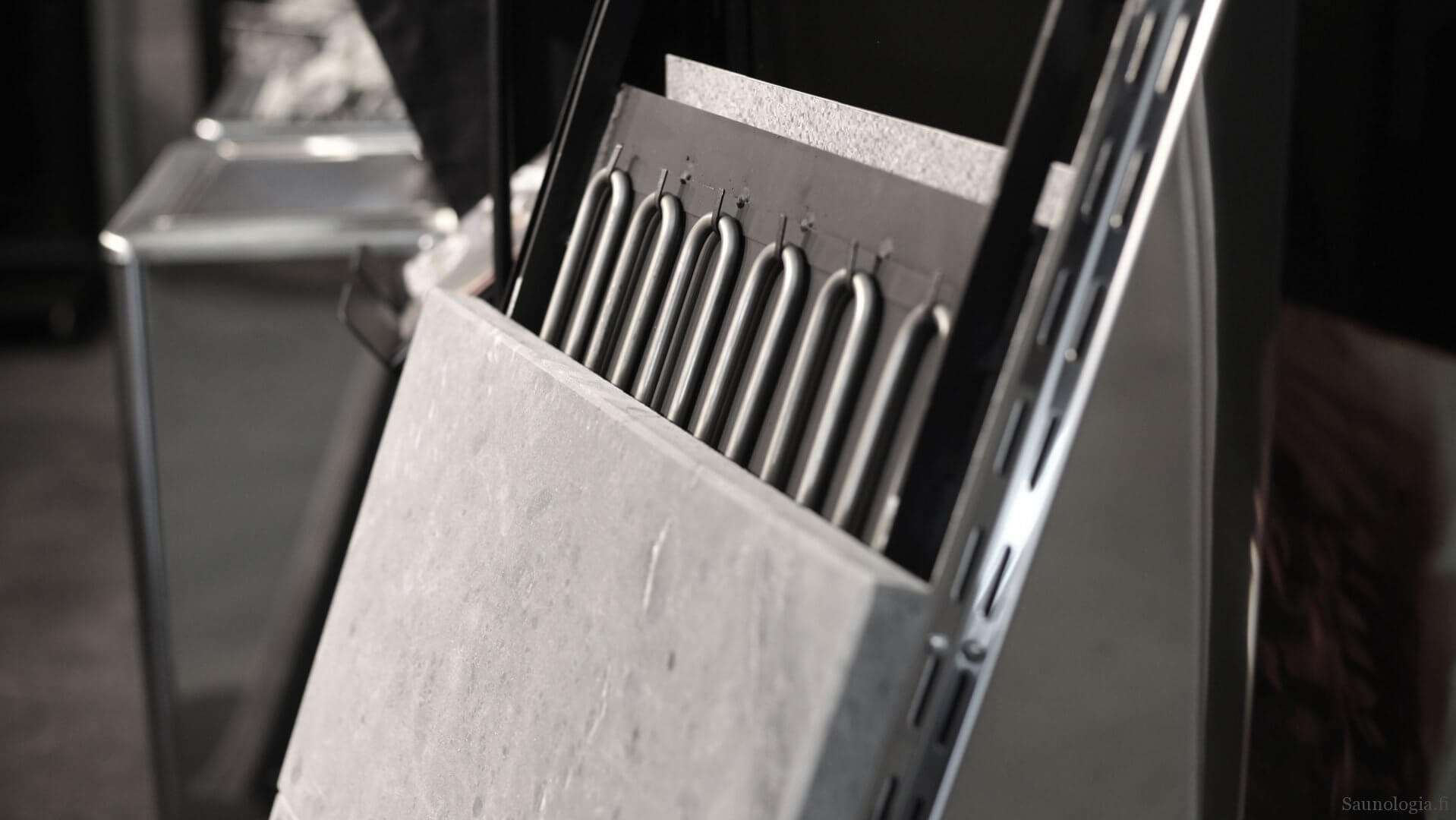
Two special stoves have been on sale for couple decades. Misa Laavu is a hybrid stove, which combines an electric and wood-fired stove. The stove has special design and is pretty expensive, probably explaining why it has never gotten very popular. For a short time it had a single competitor, but now remains the sole instance. Small company SaunaSampo sells the real luxury electric stove which provides sophisticated control over sauna and stone temperature. It also has a remote control, and a patented fan that speeds up the energy transfer from the stove to the sauna room with forced convection. Once the lid isolating the stones from the room air is opened, the fan turns on blows air through the stone space.
Additional equipment
Both wood burning and electric stoves can be equipped with several additional parts, some optional, some necessary. Wood burning stoves require a flue. Water heaters are also common option at cabins and holiday homes. They can be fixed to the flue or even integrated with the stoves. A heat coil that circulates water is also possible, although uncommon solution. Few stoves include a water tank to humidify sauna air without pouring water, but this is unusual.
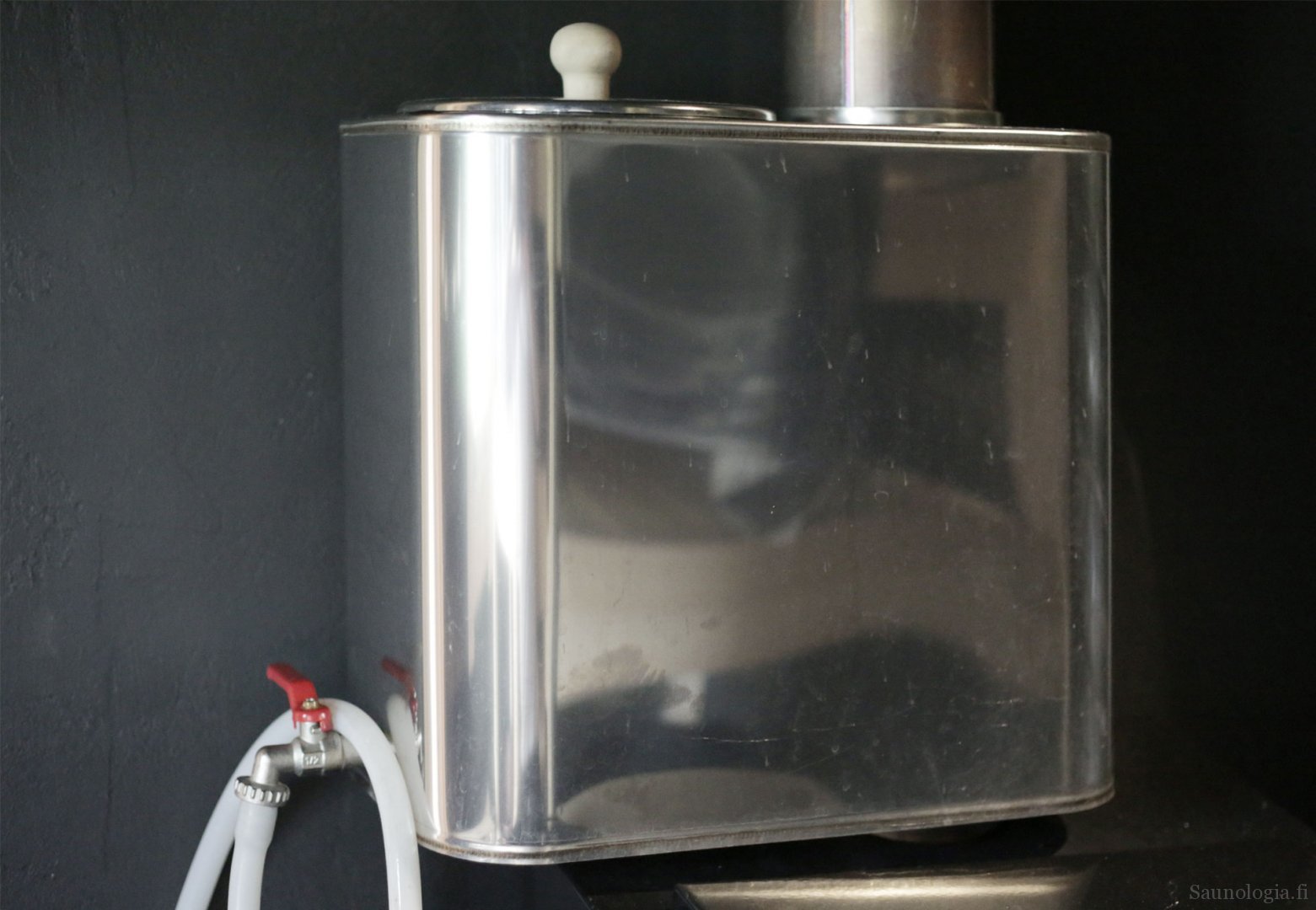
For electric stoves, the most important option is a remote control panel to set timing and the desired temperature. Setting the temperature is more accurate if an external, wall-mounted temperature sensor is available. Web and smart phone apps for controlling the stove are only just now becoming popular, but feel like natural extension to the convenience offered by an electrically heated sauna. Models designed for public use can include weekly timers.
Using an electric stove
Electric stoves are very easy to use. Even the cheapest models have a temperature controller and a timer. More sophisticated devices have a wall mounted temperature sensor which controls the thermostat and allows you to set the desired sauna room temperature. If you don’t know which temperature to start with, start low (say 65) and increase it in 5 Celsius degree steps until you find a good match with your preferences. There is no right temperature, but overall hygiene of the sauna room will be better if all surfaces heat up to 60 degrees during the sauna session.
Using a wood-fired stove
First and foremost it is advisable to always use dry firewood and refrain from burning plastic or trash. Given the free flowing structure of the stove, for instance in comparison to modern fireplaces, it is usually easy to start fire because of the good draft.
New wood-fired stoves always come with an instruction manual that informs the user how it is supposed to be used. It details, for instance, how much wood to use at the first and following batches, what are the safety distances to burning surfaces, emission & efficiency numbers, and maintenance instructions.
This concludes the fourth part of the Finnish Sauna Essentials. In the next part I will talk about the importance of air quality and ways to achieve it.
Need more information?
Saunologia Finnish Sauna consultation services in your service! We provide personal consultation in plain English! It is our pleasure to help you with projects of all size remotely and on site anywhere you need in the world.
If you want to guarantee a great Finnish sauna experience from your design, contact us first, prevent costly design mistakes and ensure blissful sauna for public or private use!
